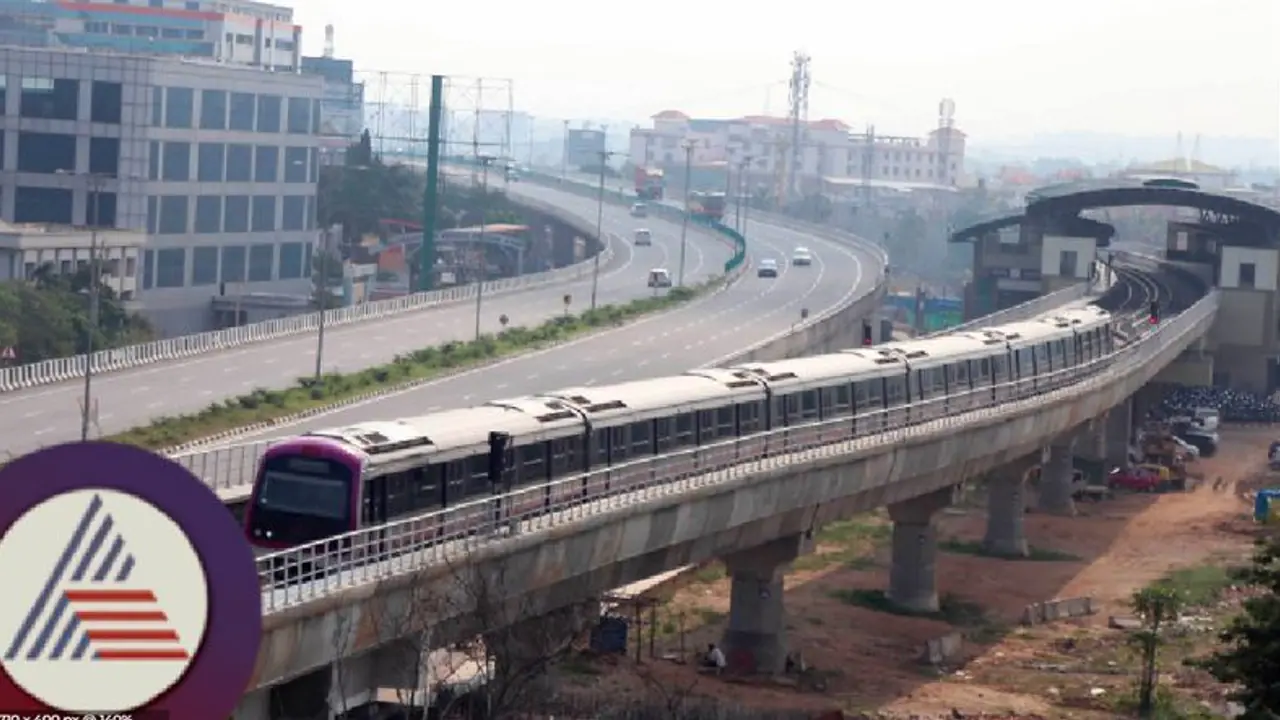Bengaluru's Namma Metro Phase 3 may face delays as BMRCL explores a double-decker model for the Outer Ring Road route. The feasibility study, costing ₹215 crore per km, is underway, with increased land acquisition and costs likely before final government approvals.
The much-awaited third phase of Bengaluru's 'Namma Metro' project, connecting the Outer Ring Road, could face delays as the Bengaluru Metro Rail Corporation Limited (BMRCL) explores a new double-decker model. This innovative approach will feature both a metro line and an elevated road, helping to ease the city's traffic congestion.

The central government recently approved 44.65 km of this project, with a budget of Rs 15,611 crore. While this approval was a green light for the project, the Karnataka government is now considering upgrades to the plan. According to recent government instructions, BMRCL will cover 40.65 km of the total project, and a tender has been awarded to RV Associates to study the feasibility of the double-decker model. A report on its advantages and challenges is currently being prepared.
Bengaluru: Youth mischievously presses emergency button in metro for 'fun'; fined Rs 5000 for 10-minute halt
After successfully implementing a double-decker structure on the yellow line connecting Electronic City, BMRCL is looking to expand this model to all future metro lines. The hope is that this design will reduce traffic and eliminate the need for extensive land acquisition for road widening. The first phase of the third metro project covers 29.20 km from JP Nagar 4th Phase to Hebbal, with the second phase stretching 11.45 km from Hosahalli to Kadabagere and an additional 14 km between Sarjapur and Ibbaluru on the Outer Ring Road.
The feasibility study is also extending to other locations, including Agra and Koramangala 3rd Block as part of Phase 3A of the project, covering 2.45 km. Initial estimates suggest that the double-decker model will require an investment of Rs 215 crore per km, with an overall cost of approximately Rs 8,000 crore.
The final feasibility report is expected to be submitted to BMRCL by December. Once received, the costs and financial partnerships will be discussed in detail. Metro officials have indicated that this model will require additional funding from the Bruhat Bengaluru Mahanagara Palike (BBMP).
Bengaluru: HC approves axing 41 trees in HSR layout for metro station
Furthermore, the compensation for land acquisition is expected to increase with the implementation of the double-decker system. Currently, around 1,29,743 square meters of land is being acquired for the 32.15 km route from JP Nagar 4th Phase to Kempapur (Corridor-1). Land acquisition is also ongoing for the second corridor from Hosahalli to Kadabagere, with BMRCL planning to report to the Karnataka Industrial Areas Development Board (KIADB) for further action.
As a result of these factors, the overall cost of the Metro Phase 3 project is expected to rise. Once the final feasibility study is reviewed and the additional funding is secured, the state and central governments will need to give their final approval before any tenders for construction can be issued, according to BMRCL officials.
